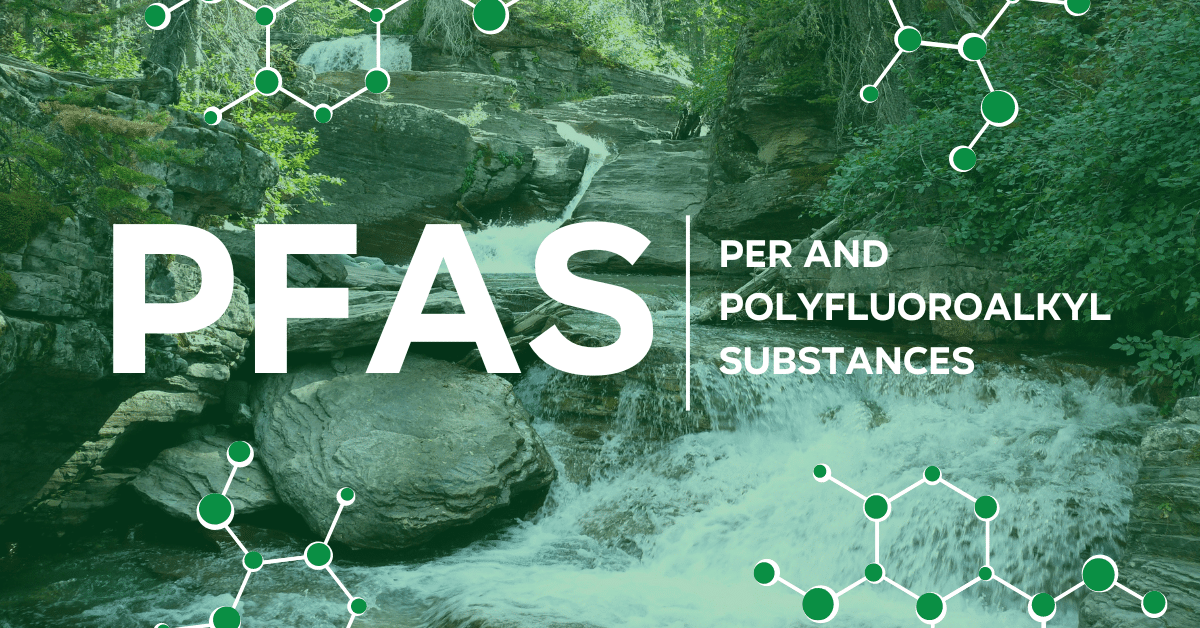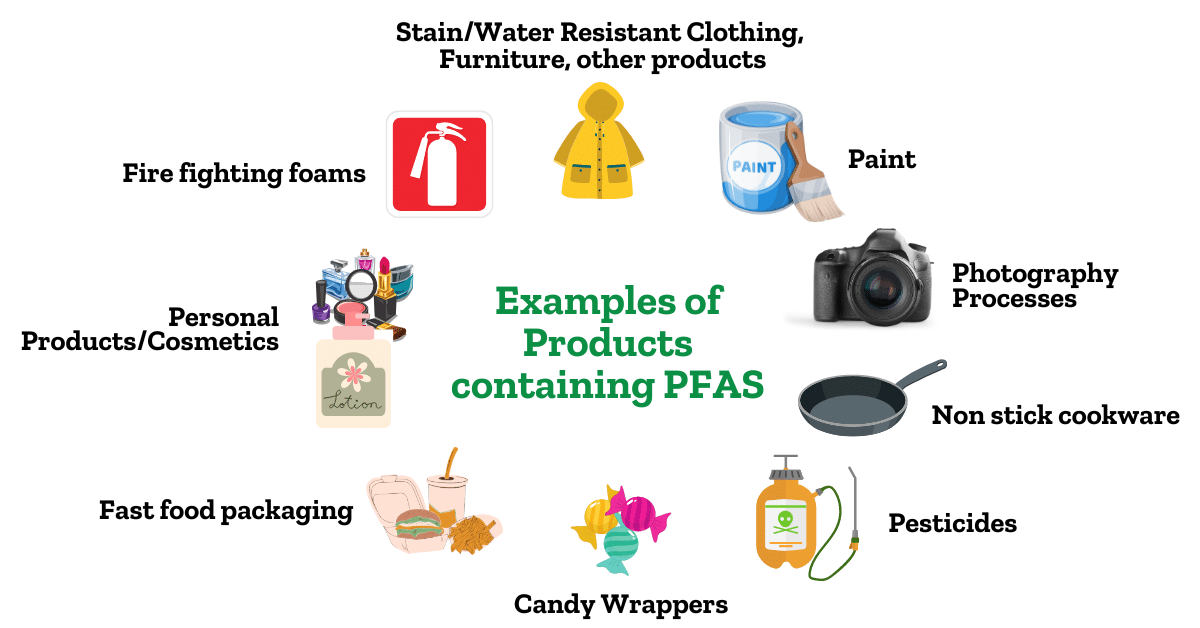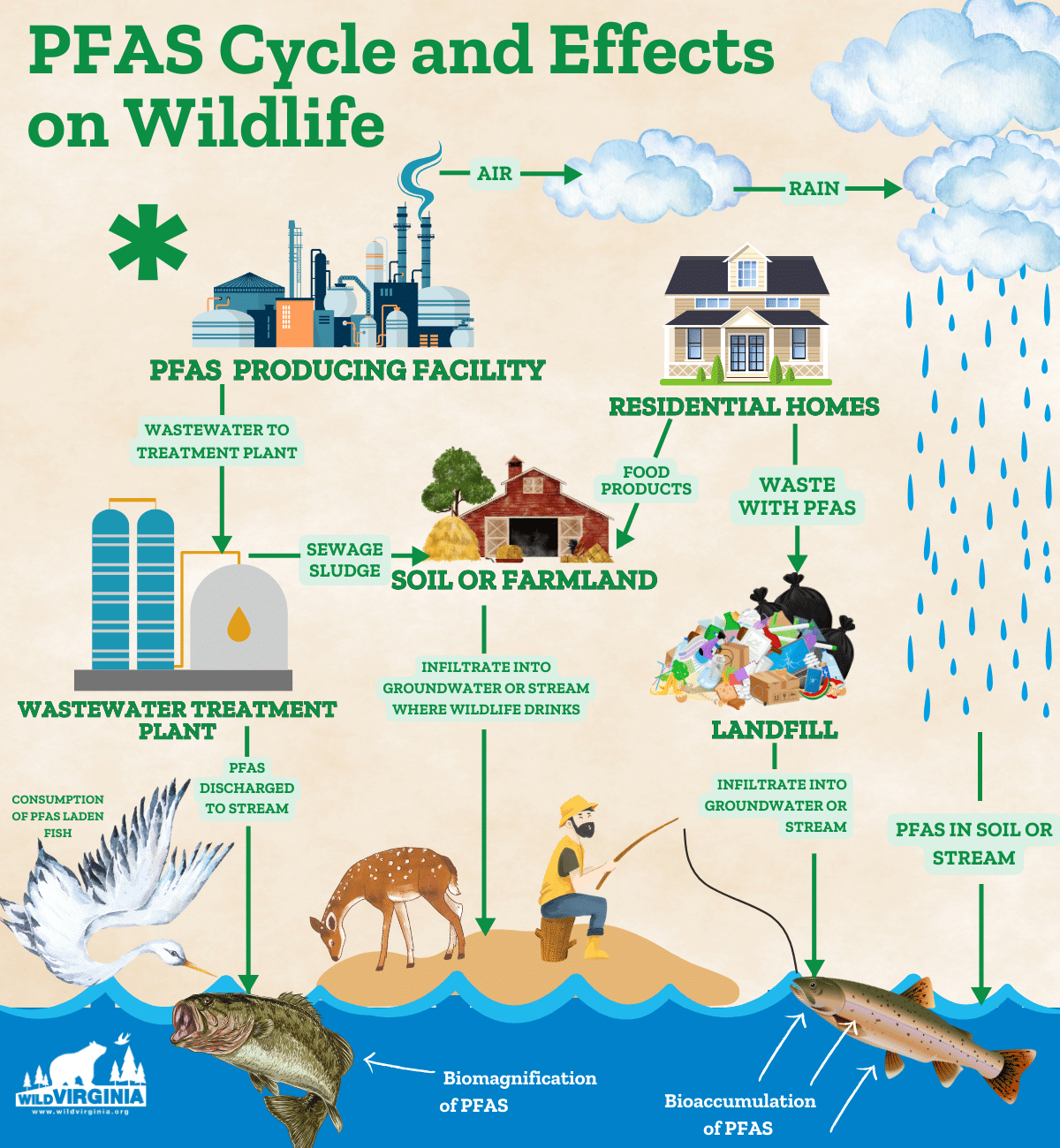Preventing PFAS Pollution
Wild Virginia fights to protect and connect Virginia’s wildlife, lands, and waters. PFAS, a toxic threat that harms us and the natural world, is being found with increasing prevalence and danger in our environment and communities, demanding that we act now.
What are PFAS?
Per-and polyfluoroalkyl substances (PFAS) are toxic, synthetic chemicals that are present throughout Virginia in the air, water, and soil. They linger in the environment and build up in organisms, taking so long to break down they have earned the name forever chemicals, leading to widespread contamination and long-lasting risk of exposure.
What are the health risks of PFAS exposure?
Scientific studies show that PFAS pose significant risk to human health. Such health risks include cancers; harm to fetal and/or infant development; increased cholesterol levels and/or risk of obesity; decreased fertility; increased high blood pressure during pregnancy; reduced immune system function; and disrupted hormonal processes.
Wildlife exposed to PFAS present similar negative health effects, including increased incidence of disease, cancers, and lowered reproductive success. Additionally, the bioaccumulation of PFAS in wildlife, especially aquatic species like fish, frogs, and salamanders, means that our likelihood of seeing or hearing these wild creatures is diminished. Like DDT, PFAS has the potential to silence the woods.
How does PFAS exposure occur?
Polluted water is a major pathway of exposure. Virginia waters have become polluted with these forever chemicals due to PFAS discharges into streams, rivers, lakes, and wetlands. The sources of pollution include industrial users, wastewater treatment plants, runoff and seepage from PFAS-laden firefighting foams, synthetic turf sports fields, and land-applied sewage sludge biosolids. Importantly, conventional water treatment systems do not remove PFAS from drinking water or wastewater and PFAS discharges can contaminate drinking water, surface water, soil, crops, and forage.
Another major pathway of exposure is consuming fish or shellfish from polluted waters or game meat from near such waters. The risk of prolonged, repeated exposure increases for individuals and communities that subsistence fish.
Finally, the mere presence of PFAS in Virginia’s waters means that we risk exposure to PFAS when we engage in recreational activities such as paddling, boating, swimming, or fishing.
What We Are Doing:
Wild Virginia aims to prevent further PFAS contamination by stopping PFAS pollution at its source because PFAS threatens our enjoyment and experience of Virginia’s wild places, the health of our communities, and the health of terrestrial and aquatic wildlife. We will do this by
- Insisting that the Virginia Department of Environmental Quality (DEQ) and State Water Control Board use all current authorities to prevent the release of PFAS into our waters, through discharges from wastewater plants and industries. We will not accept delays in enforcing the Clean Water Act and state laws to prevent PFAS harms!
- Advocating required testing and removal of PFAS in sewage sludge biosolids that is applied to farm lands across the state, as well as advocating to end this polluting practice.
- Advocating for state legislation focused on reducing further PFAS pollution, mitigating current contamination, notifying the public of any future contamination, and compensating landowners.
- Educating the public, decision makers, and the media about PFAS.
Get Involved
- Follow our updates and keep informed about what we’re doing and to learn more about PFAS. Tell your friends, neighbors, and family to do the same.
- Donate to support Wild Virginia’s work to prevent further PFAS contamination and keep our land, air, water, and wildlife safe from these harmful chemicals.
- Join Wild Virginia or renew your membership here.


